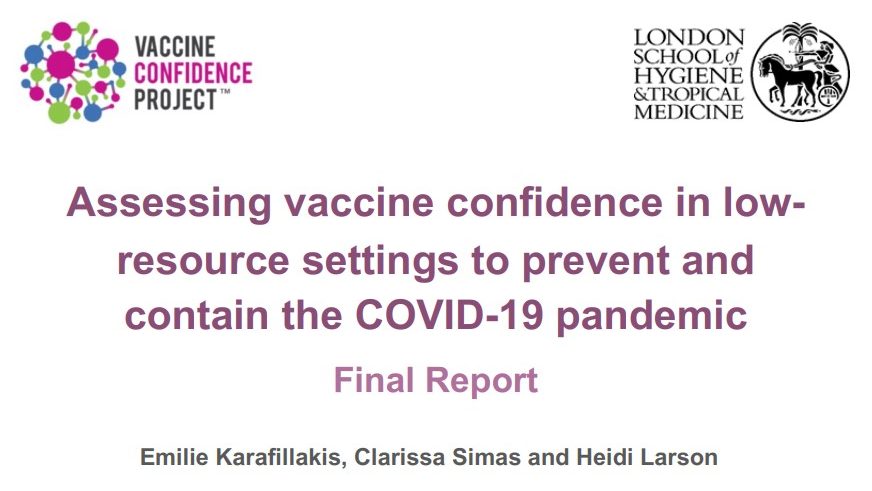The aim of this project was to support the development of guidance on interventions to improve vaccine uptake in LMICs informed by an assessment of local barriers and drivers to adult vaccine uptake. Specific objectives were to:
- Identify local barriers and drivers to vaccine uptake across selected LMICs
- Develop a framework to categorize barriers and drivers of vaccination uptake
- Provide insights to inform interventions and programs to facilitate vaccine uptake in LMICs
The Vaccine Confidence Project (VCP) worked towards achieving the aims and objectives of this project through three separate phases linked to the three study objectives. Successful interventions to improve vaccine uptake need to be context-specific and address the key barriers and drivers of vaccination uptake in specific populations. We started this project with an assessment and identification of the local barriers and drivers to vaccination uptake across countries in Africa. The identification of local barriers and drivers of vaccination in these countries informed the development of a framework to categorize barriers and drivers of vaccination uptake. In a second phase, we provided insights to support the conception and development of interventions and programs to facilitate vaccine uptake in LMICs. Finally, we developed a toolbox of interventions to address some of the local barriers and drivers to vaccination uptake identified in phase 1.
Various barriers and drivers to adult vaccination uptake have been identified from existing VCP data, showing that adult vaccines such as COVID-19 are prone to public concerns about vaccine safety, importance and effectiveness as well as more contextual issues that will require long-term efforts to address such as mistrust of governments, new technologies or international organisations. More research should be conducted to synthesise past evidence on adult vaccination uptake, as this project mostly focused on existing VCP data. High quality evidence on interventions to address barriers and drivers to adult vaccination uptake in Africa is currently lacking, with important gaps identified in the scientific literature. Further research to evaluate interventions at various levels of the socio-ecological model is therefore recommended in various African countries, as well as within countries to explore differences at various local and community levels. From existing evidence, various interventions at different levels (e.g. interpersonal, community, societal) can have positive effects on adult vaccines intentions and uptake, with activities focusing on communication showing encouraging results.


